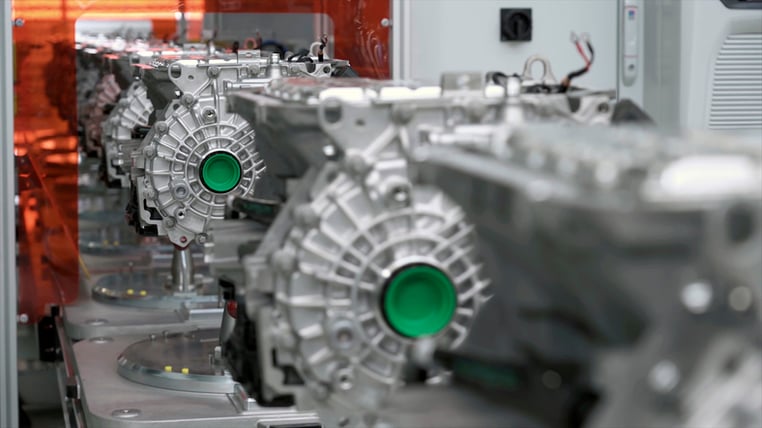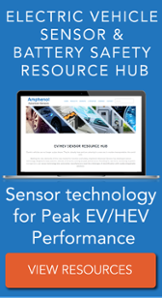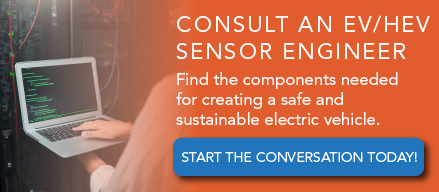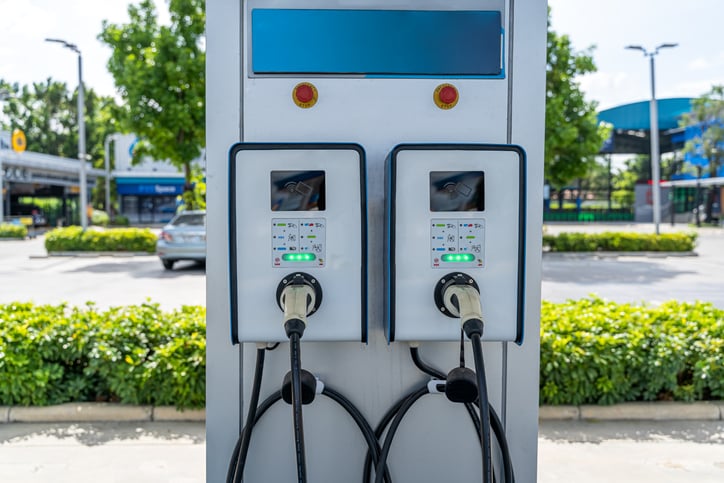Vetting EV Automotive Sensor Manufacturers for Optimized Sourcing

In the history of automotive manufacturing, complete in-house construction of vehicles has been a rarity – especially at the mass-production level.
Put simply, it’s near impossible to build a vehicle – even electric – without incorporating parts from external sources into their builds.
Given supply chain issues still facing automotive production, partnering with a third-party components provider – such as EV automotive sensor manufacturers – matters more than ever.
As sensors play a pivotal role in the functionality and safety of electric vehicles, the process of selecting a sensor supplier demands scrutiny. While cost is a significant factor, it should not be the sole criterion in this decision.
A comprehensive vetting process ensures that the chosen partnership will be dependable and require minimal reconsideration in the future.
9 Things to Look for in EV Automotive Sensor Manufacturers
Supply chain challenges have caused erratic production schedules and rapidly fluctuating prices over the past year. Across the board, components are costing more – for instance, microprocessor chips are costing 30% more on average while other component prices have jumped as much as 40-50x.
All this is occurring amid growing demand for electric vehicle manufacturer components.
That’s why now more than ever, it’s crucial to work with third-party suppliers that meet expectations. While cost is always a part of the negotiation process, an evaluation of electric vehicle automotive sensor manufacturers should also take a deep dive into:
- Program management capabilities
- Production timeline
- Fast prototyping
- Responsiveness
- Certifications/accreditations
- Reputation
- Location
- Manufacturing capabilities
- Supply chain
1. Program Management Capabilities
Whether you’re ordering a standard EV sensor or one that’s custom-made, look for an automotive sensor manufacturer that assigns someone to oversee your project. A project manager of sorts, this person acts as your point of contact and manages the manufacturer’s supply chain.
In addition, they’ll also oversee production across departments to make sure your electric vehicle components are made correctly and on schedule.
2. Fast Prototyping
An initial prototype goes a long way to preventing you from receiving a sensor that doesn’t work for your EV design. Fast prototyping gets a representation of the final product in your hands sooner, allowing you to make decisions long before signing on the dotted line for a large order. The prototype should be vetted by your team and tested in-house to meet requirements.
The best manufacturers should be able to provide you with a prototype in about two weeks and then quickly implement any needed modifications for the major components of electric vehicles.
3. Production Timeline
Production timelines are crucial to meeting your deadlines and they’ve been a bit challenging due to supply chain issues faced by all industries – auto sensor companies included.
Even for the most efficient automotive sensor manufacturer, it will take time to produce the components used in electric vehicles. Large orders are rarely completed in a single run. Rather, there’s a ramp-up schedule. For instance, producing an order of 10,000 units might start with making 500 in the first month, 1,000 the next, and 2,000 in the months that follow.
4. Responsiveness
One of the biggest barriers to completing any project successfully is a lack of communication.
Small lapses in communication can have big impacts. An OEM sensor manufacturer you’re partnering with should prioritize communication and availability – even if that means adjusting to the time zone you work in.
You’ll learn a lot about responsiveness during the initial phases of the electric vehicle design and purchase process, but you should expect consistent and timely communication throughout the entire project. The last thing anyone wants is to learn about a surprise issue after it’s too late.
Certifications/Accreditations
Always work with automotive sensor manufacturers with the credentials. Yes, we recognize this is incredibly obvious, but it's worth mentioning. This gives you peace of mind that they know what they are doing and have the experience to do it right.
The last thing you want is to get halfway through a project only to find that your manufacturer is missing a necessary credential and is unqualified to fulfill your order.
 6. Reputation
6. Reputation
It goes without saying – partner with sensor manufacturers with the best reputation. Defects and recalls are expensive and can hurt your brand. Don’t work with any supplier that has less than a stellar reputation.
You also don’t want to work with a brand-new manufacturer as their first customer. Find out from industry experts which manufacturers have the best reputation before entering into a production agreement.
7. Location
Manufacturing location plays a big role in a project’s bottom line, especially with tariffs and international shipping costs. Of note, tariff rebates only work with eligible countries, so EV sensors made in Russia, for example, are going to have high tariffs.
Since standards aren’t universal, there may also be an additional cost to have your sensors retrofitted to meet your specific country's rules and regulations.
8. Manufacturing Capabilities
One of the most important things to consider when vetting a sensor manufacturer is what they’re actually able to do. There’s nothing worse than partnering with a manufacturer of any sort that ends up not being able to deliver the components you need for your electric car design.
We always recommend EV manufacturers visit a component production facility and get a first-hand view. Besides seeing the shop in action, you can verify the operation meets labor standards and other regulations, such REACH and RoHS.
9. Supply Chain
With today’s challenging automotive supply chain environment, evaluate what a manufacturer's supply chain looks like. Is the sensor maker fabricating the device on their own, or are they relying on components or raw materials from other suppliers?
You’ll want to have an in-depth discussion about the supply chain of your sensor company, what items they already have in inventory, and how they are protected against disruption.
Confidently Partnering With EV Automotive Sensor Manufacturers
As the transportation industry shifts almost completely into electrification for new vehicles, sourcing components reliably should be the last thing you worry about. With careful evaluation, a third-party component provider for sensor technology seamlessly fits into your EV manufacturing process.
And in a best-case scenario, your sensor provider augments your production, freeing you up to focus on other elements of vehicle manufacturing.
How Can We Help?
Speak with one of our EV sensor engineers today to learn about how our production capabilities can easily be integrated into your manufacturing operation:




